Houseplants don’t just raise the appearance of a house. They also help to boost our moods. That’s why most homes have indoor plants. How can we know if our plants are safe for our pets? This article focuses on the Boston fern plants and whether or not they are toxic to cats.
Table of Contents
- What are Boston ferns?
- Are Boston ferns toxic to cats?
- Why is your cat Eating Boston Ferns?
- What happens if your cat eats a large amount of Boston Ferns?
- How to Stop Cats From Eating the Boston Fern?
- What are Some Poisonous Ferns?
- Conclusion
What are Boston ferns?
The Boston Fern, sometimes called the sword fern, is a member of the fern species. Its scientific name is Nephrolepis exaltata, which mainly grows in tropical areas.
The Boston fern is a popular household plant. It is well-liked because it is always evergreen and needs little to no sunshine to grow.
Boston ferns require special attention to be healthy like any other indoor plant. In return, they help improve the quality of air in our homes.
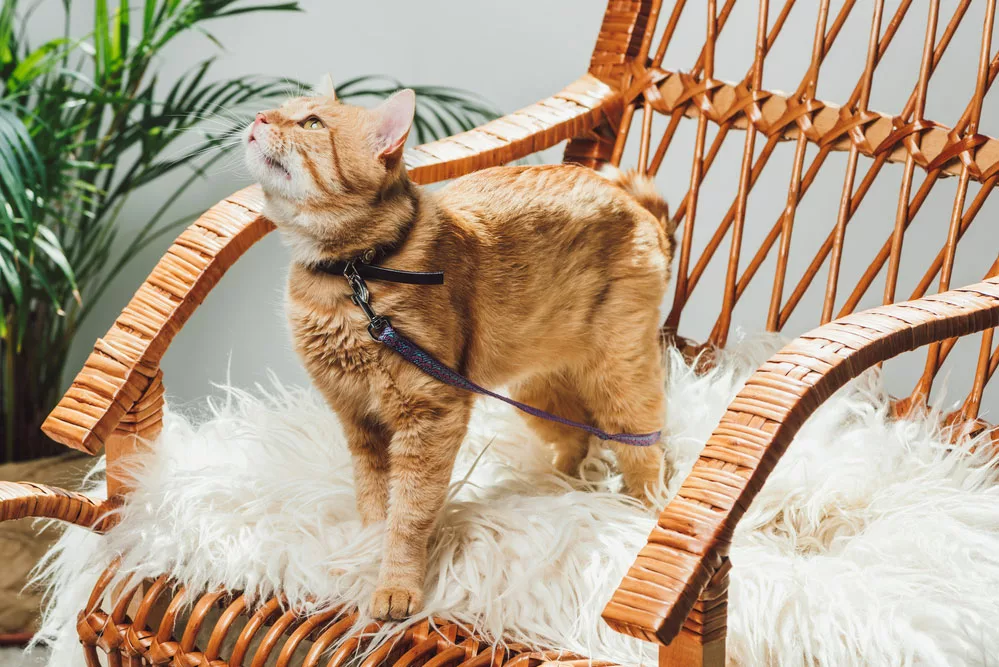
(cat and plant)
Are Boston ferns toxic to cats?
It’s a given that you’ve heard that some fern species are poisonous to pets. However, Boston ferns are not among those that are toxic.
Also, the ASPCA says Boston fern plants are safe for humans and cats. The reason behind it is that they make our homes have better air and less humidity.
As much as these ferns aren’t toxic to cats, ingesting too many of their leaves might cause some illness. So as a cat and plant lover, ensure that the plants are out of reach for the cats.
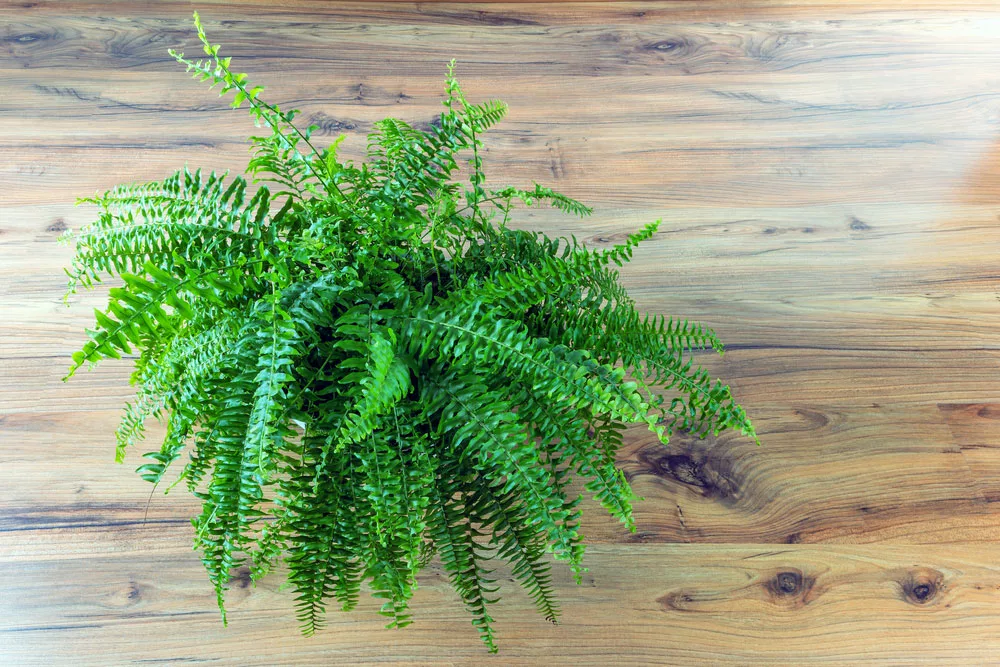
(a Boston fern in a room.)
Why is your cat Eating Boston Ferns?
Cats are usually very playful creatures. They will always be attracted to colorful and attractive things, like plants or flowers.
Usually, when cats see plants, it’s hard for them to resist putting their paws on them. It’s often not a bad thing. But, if your cat is excessively attracted to plants more than its toys, it probably has a hairball issue.
The hairball issue comes about when your cat has difficulties coughing up hairballs. To ease this discomfort, cats usually eat plants, which helps them throw up.
You can regularly brush your cat’s hair to reduce hairball problems. Additionally, provide your cat with foods rich in fiber. Fiber helps with digestion.
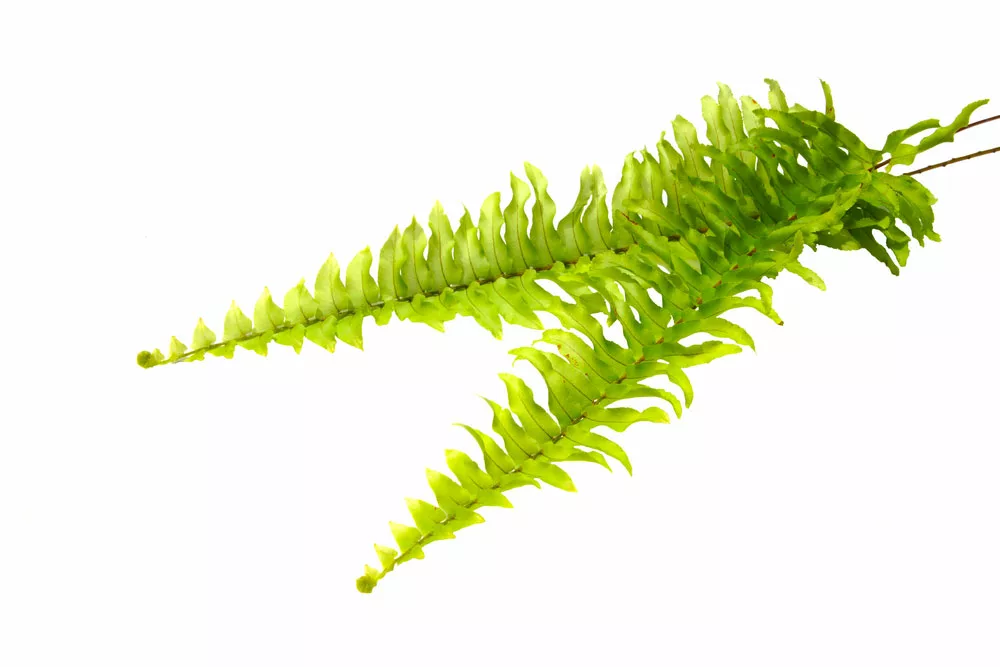
(leaves of a Boston fern)
What happens if your cat eats a large amount of Boston Ferns?
Even though Boston ferns do not contain poisonous cats, you shouldn’t let your cat munch on them. It will not only damage your plant, but also your cat might become sick, especially if it eats too many of the fern’s leaves.
If this occurs, you can notice some of the following symptoms:
- Uneasy stomach
- Indigestion
- Vomiting
- Diarrhea
- Drooling
Although very rare, when your cat brushes itself against the Boston fern, it may result in skin irritation. In such a situation, a visit to the vet is essential.
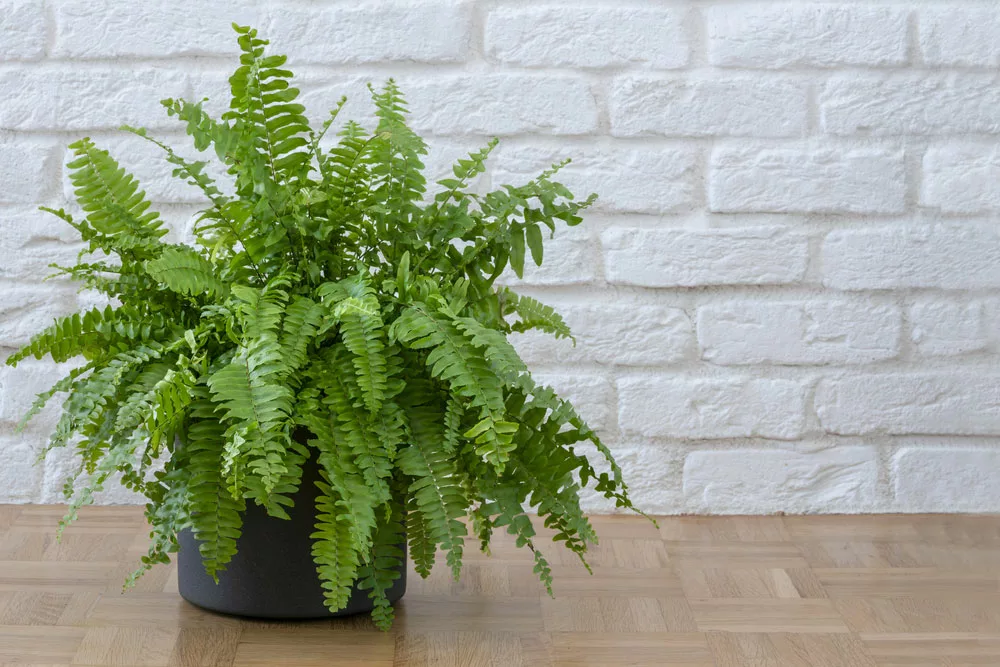
(a potted Boston fern.)
How to Stop Cats From Eating the Boston Fern?
It is possible to stop your cat from interacting with the plants in your home. You can do this by;
Using a repellant spray.
By repellant spray, we mean cat deterrent sprays that you can use on your plants.
Many products in the market with strong scents can cause your cat to sneeze. Alternatively, you can make your own at home using supplies you already have.
For example, water mixed with soap with a strong scent, such as lavender or citrus, can work well. However, try garlic puree in water for a similar but more overpowering result.
If your cat is still stubborn, sprinkle some hot pepper around your plants for a similar effect. It could be painful if the cats get too much in their eyes or nose. You always have to be careful when using this method.
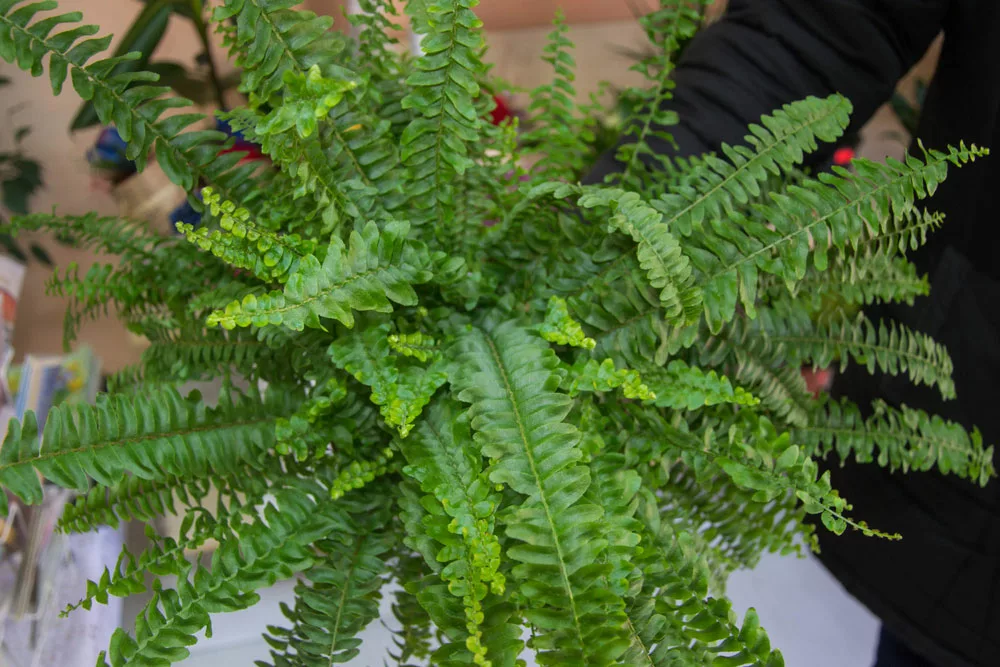
(a close-up of a sword leaf)
Try a spray bottle.
Using a spray bottle is a traditional way of cat training. Although traditional, spraying on your cat when they get too close to your plants is very effective. However, it only becomes effective if you’re always at home spraying.
Otherwise, your cat will take advantage of the times you’re not in the house to be mischievous.
Change the placement of the Boston fern.
If your cat is very agile and determined, you might only need to relocate your Boston fern plant. Hanging baskets away from furniture is a good way of keeping plants out of a cat’s reach.

(a hanging Boston fern in a basket)
Add a layer of pebbles.
This method is for cats that love digging. Cats can easily dig in for their potty needs if their plant pot has exposed soil. To prevent this from happening, put a thick layer of heavy pebbles on top of the dirt.
You can use big chunks of polished glass, rough pine cones, seashells, or broken ceramics for a more beautiful appearance.
What are Some Poisonous Ferns?
There are countless varieties of ferns. While some of them are harmful, others are not.
That said, there are a few non-poisonous varieties besides Boston ferns, including:
- Holly Fern
- Bird’s Nest Fern
- Staghorn Fern
- Maidenhair Fern
- Button Fern
- Carrot Fern
- Rabbit’s Foot Fern
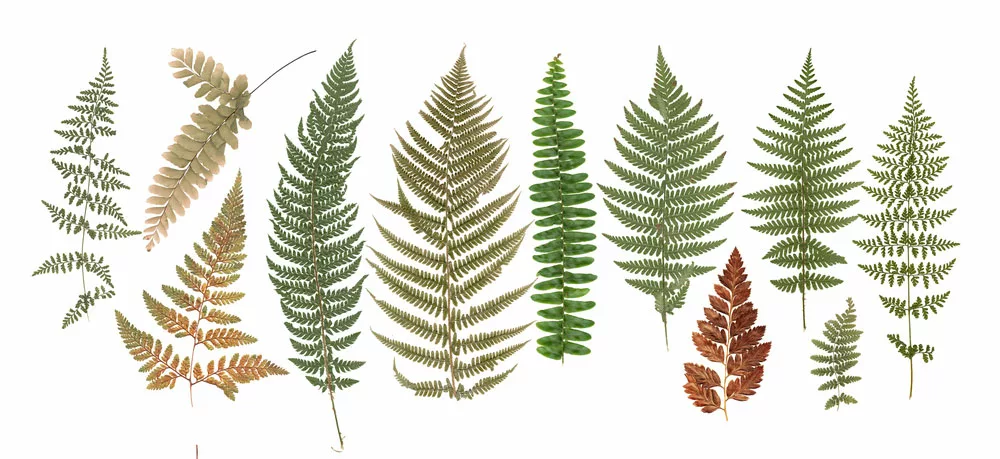
(different dried fern leaves.)
Conclusion
Now you know that Boston ferns are not toxic to cats. Therefore you can have them in the same environment as your pets.
We hope this article has been of help to you.
